Abused by a Catholic priest, this man turned back to faith for forgiveness
Though angry at the Catholic church after suffering abuse by one of its priests, Michael Prats wasn't ready to leave his faith.
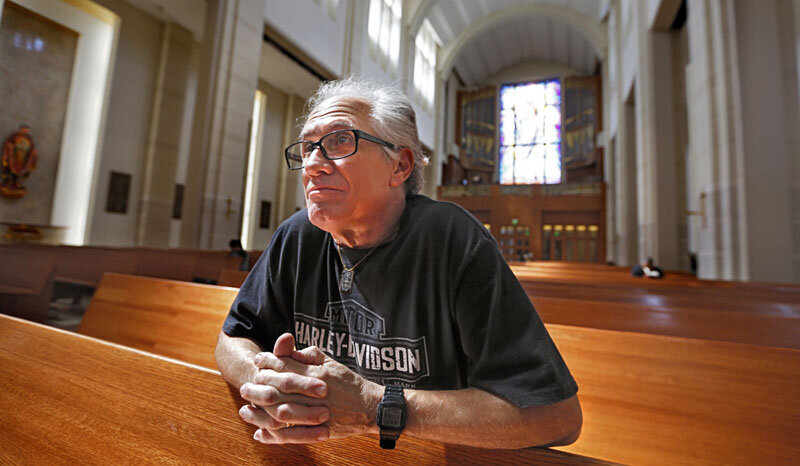
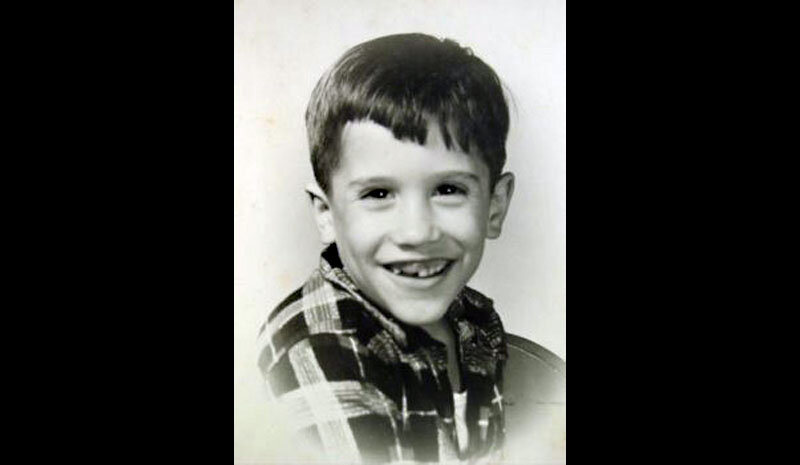
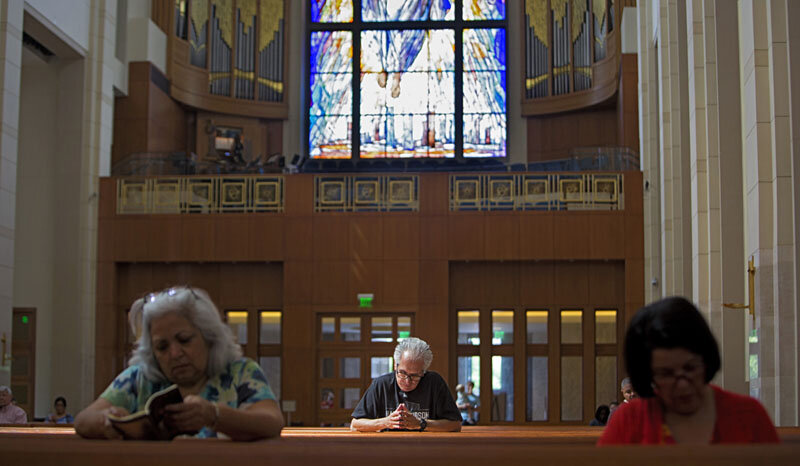
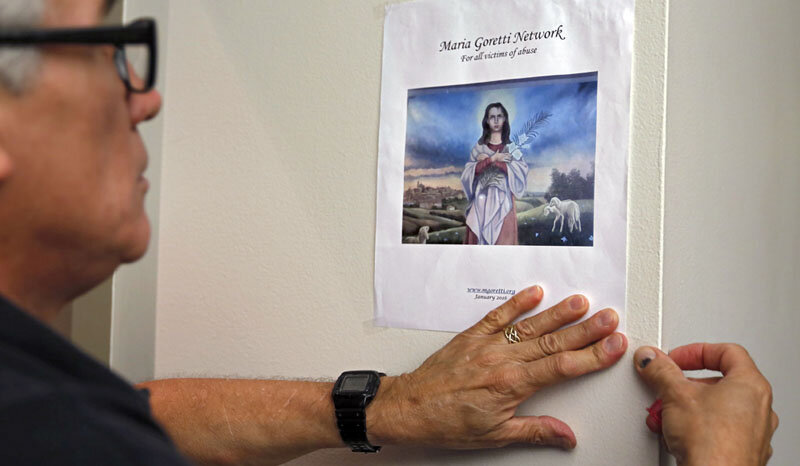
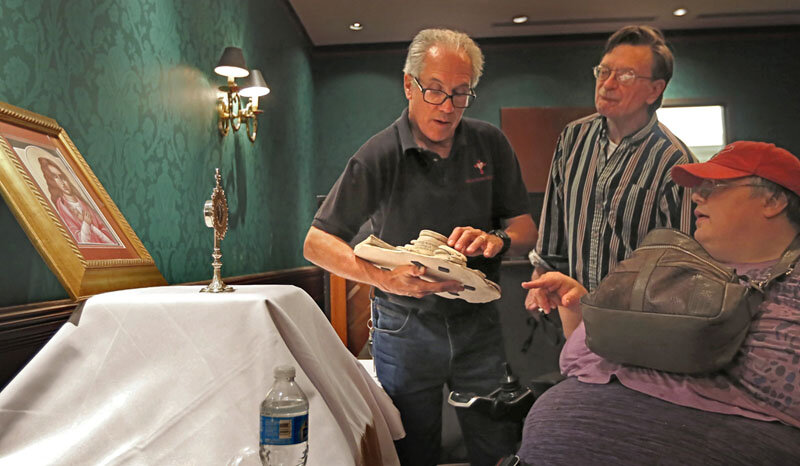
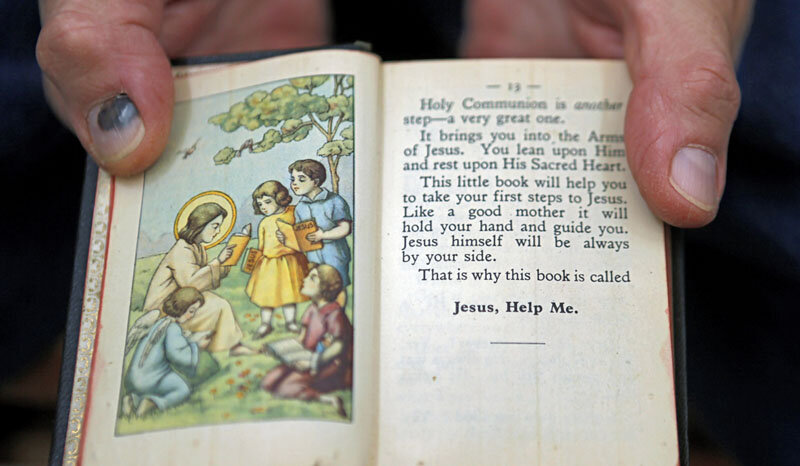
By Jake Smith
MAY 8, 2017—When Miguel Prats revs the engine of his Harley Davidson, it might sound angry to some — but not to him.
“When I’m on this bike, I literally feel surrounded by angels,” he says. “You can be frustrated, you can be anything. You get on this and go for a ride, and it just goes away.”
Today, Prats has a wide-eyed, happy-go-lucky demeanor. But he says 15 years ago, he was angry and tortured inside. In 2002, when the Boston Globe uncovered widespread sexual abuse within the Catholic Church, the story brought back a memory that Prats says he had repressed: shortly after he turned 18, he himself had been sexually abused by a priest.
When this memory came flooding back, Prats felt furious and alone. He went on the internet looking for someone to talk to. What he found was a group called Survivors Network of those Abused by Priests (SNAP). SNAP had helped the Globe uncover the abuse scandal. You may remember them from the film Spotlight.
For Prats, the group was a lifeline.
“SNAP was the only thing out there for people like me,” he says.
SNAP is a national organization dedicated to helping people abused by clergy. In addition to organizing support groups and running a survivors’ hotline, it also took an activist role, protesting outside of major Catholic events, and helping survivors take legal action against the Church.
“So it was real strong, and really a lot of angry people,” says Prats. “And SNAP leadership took that energy, that negative energy, and focused it into giving the Church what for.”
The organization let Prats put the anger he was feeling into action. SNAP trained him in community organizing, and over the next couple of years, Prats started five SNAP chapters across Texas.
“I put a hundred thousand miles on my car in one year, traveling around Texas,” he recalls.
Prats says that this work felt good — he was keeping busy while getting justice. But inside, he was still not at peace, “because that anger was still there.”
Love thy enemy
In these years, anger permeated Prats’ life. He was suicidal at times. He says his face even looked different — twisted by rage. Much of his anger was directed toward the Catholic Church for covering up the abuse. But he was also angry because he felt he was missing something.
Prats was born and raised Catholic, and attended Catholic schools for his entire education. He remembered the wonderful priests from his childhood, and how comforted he once was by his faith. And, angry as he was at the Church, Prats still believed in God.
Miguel Prats prays in the sanctuary of the Co-Cathedral of the Sacred Heart Catholic Church in downtown Houston. Prats, a longtime member of the Catholic church, started a support group for victims of abuse. (Annie Mulligan / Freelance)
While for the most part he had turned away from the Church he grew up loving, he longed to have that spiritual connection again.
“I would go to church occasionally, even in the darkest times,” Prats recalls. “Lot of times I’d go when nobody was there, just to sit.”
Most people in SNAP didn’t understand why he would still want to go to a Catholic Church. Prats says they saw him as a traitor, that many of them considered the Church the enemy — but he wasn’t so sure. In fact, the more he worked with SNAP, the more he thought that SNAP should be working alongside the Church to make sure more kids were not abused.
That’s why he decided to contact all of the Catholic bishops across Texas. When he tried to make an appointment with the Bishop of Tyler, about three hours from Prats’ hometown of Houston, the request got sent down to one of the Bishop’s subordinates, Father Gavin Vaverek.
“The Bishop of Tyler said, ‘Before I meet with him, I’d like you to meet with him,’” Vaverek recalls.
Vaverek — known to some as Father Gavin — is both a priest and the Promoter of Justice for the diocese of Tyler. That means he serves as a first responder for anyone who’s been abused by a priest in the diocese, and he’s also a sort of special prosecutor if someone wants to bring a priest before a Catholic tribunal.
Vaverek agreed to meet with Prats over breakfast. Both men say the meeting was a bit tense at first — they clearly didn’t trust each other. But after the meal, Vaverek invited Prats to observe a training session he was leading to teach other priests how to spot and handle abuse.
Prats tagged along, and was impressed.
“Gavin would bang the podium and scare everybody,” Prats says. “And he would just — ‘People, I’m telling you something important, pay attention!’ And I was like, ‘Woah! This is great. This is what we need in the Church. We need priests telling people how important it is to protect children.’”
Miguel’s big idea
For the next several months, all of this is stewing in Prats’ mind: he wants to keep helping survivors of abuse; he wants to work with the Church; and he doesn’t want to be so angry anymore.
And one day, he realizes what he should do.
“So I call Gavin up and say, ‘Can you get your boss and have dinner with me? You know, I just want to break bread,’” says Prats. “And I didn’t really tell him about any of my ideas.”
Vaverek and his boss — the bishop of Tyler — agree to this mysterious dinner date, although they’re uneasy about it.
While driving to the dinner, Vaverek remembers trying to figure out what this person from SNAP might want from them.
“And the bishop at a certain point turns to me and goes, ‘Why are we doing this?’” Vaverek recalls. “I said, ‘Because the gentleman has been hurt.’ And the bishop says, ‘You know, this could be a trap.’ And I’m like, ‘It could be, Bishop. They might have all kinds of media there. There might be all kinds of protesters there.’”
They show up to the dinner. It’s not a trap. But there is a surprise.
Prats recalls the moment he broke the news: “I just all of a sudden said, ‘Well, I guess y’all know I didn’t invite you here just for dinner.’”
The clergymen’s reactions were priceless, says Prats. “I thought Father Gavin was going to have a heart attack. His face went pale, and he’s like, ‘Oh no, I dragged the bishop to this crazy guy’s house!’”
According to Vaverek, that’s when Prats posed a question to the Bishop: Had he heard of Maria Goretti? “And the bishop said, ‘Saint Maria Goretti?’”
The story of Maria Goretti accepted among Catholics goes like this: Maria was an 11-year-old girl who lived in rural Italy at the turn of the 20th century. One day, her teenage neighbor, Alessandro Serenelli, made sexual advances toward her. When she refused, Alessandro spun into a rage and stabbed her 14 times. But as she lay dying in the hospital, Maria said something incredible: “I forgive Alessandro, and I want him in heaven with me.”
Maria was canonized as a saint in 1950, making her the youngest Catholic saint to date. She’s become known as the patron saint of, among other things, forgiveness.
Shortly before arranging this dinner meeting, Prats had heard Maria’s story for the first time from an old friend. It had inspired an idea in him, one that he now shared with Vaverek and the Bishop: What if there was a Catholic version of SNAP? It would be a support network for people who had been abused — not just sexual abuse by priests, but all kinds of abuse, by anyone. And, crucially, it would focus on healing, and forgiveness, rather than accountability.
“And I thought, ‘Well, why don’t we call it Maria Goretti Network, and use her as a model of how to forgive?’” says Prats. “Because I really wanted to forgive, but I couldn’t forgive because I was so hurting.”
After the dinner, Vaverek says the Bishop took the idea to heart. “He said, ‘You know, I think there’s something of the Holy Spirit in this idea. See if you can do something to help get that started.’”
‘The forgiving is not for them. It’s for us.’
The Maria Goretti Network held its first meeting in 2004, about a year after that dinner. They’ve had meetings nearly every month since. Today, there are five chapters across Texas, and one in Seattle, all of which meet in libraries and conference rooms at the offices of local Catholic churches.
The Network is what’s called a “lay apostolate,“ meaning they have a special, cooperative relationship with the Church, but aren’t officially part of it.
For the last decade, these meetings have helped Prats to forgive his abuser, and others who wronged him — and he’s seen them work wonders on other people, too. His dream is to see chapters of his network in every parish someday.
At the beginning of a meeting, everyone goes around the circle, introduces themselves, and shares about how they’re doing. After that, the men and women split into separate groups and talk more. There’s no structured discussion — people are free to share whatever’s on their minds. Sometimes, they talk about their paths to forgiveness. Other times they just chat about their lives and families. At the end, everyone comes back together to read some reflections on forgiveness and say a few prayers.
While these meetings are strictly confidential, several participants agreed to discuss their their experiences on the record.
Kathy Gomez has been part of the Maria Goretti Network for about six years. As a child, she was abused by family members. Today she helps lead meetings in Kingwood, Texas, near Houston, which she says has helped her to better understand what forgiveness is really about.
“Forgiveness does not mean that you are saying it was okay that they did it,” says Gomez. “If they need to go to jail, they need to go to jail. But what you are doing is saying, ‘You know what, I’m not gonna allow you to take up any more space in my head for free.’”
“The forgiving is not for them. It’s for us. And so that’s the crucial part of the Maria Goretti Network.”
Gomez says she has forgiven her abusers for what they did to her. And yet, she still has her moments.
“I still have situations come up that are very painful,” she explains. “And I tend to go into self-pity — it’s very easy — and then resent God for it. Like, ‘Okay, God, I’ve worked so hard in my recovery and in my healing process, and this is what you pay me back with? This is what I get?’ I was just at confession a few days ago, confessing my anger and resentment at God, and trying to let that go.”
Kristopher Galland was sexually abused by a priest hundreds of times as a child in Dallas. Like Prats, he was furious at the Church. He had stopped going to mass when he was 16. But when Prats asked him to come to a Maria Goretti Network meeting, he agreed.
At that meeting, there was a priest in the room: Father Gavin Vaverek. Seeing Vaverek’s Roman collar made Galland nervous. But he says he stuck around.
“After we had the meeting, he offered to give us an anointing for the sick,” says Galland. “And I had not been anointed with oil probably since confirmation or something like that — you know, 10 or 12 years old. And so we went across the parking lot into the big church. And he anointed us and we all held hands and prayed. And I got that cold chill down my spine that I got the first time I received communion — that feeling that I had not had since I was a little boy.”
Galland kept going to meetings after that. Today, he actually calls himself a “recovering Catholic.” He doesn’t go to mass much, although he and his girlfriend intend to get married in the Catholic Church.
“That’s a big step for me,” Galland says with a smile. “That means going to mass on Sundays. That means eating fish on Fridays during Lent. That means a lot of things.”
Forgiveness and fury
Can forgiveness coexist alongside righteous anger? Father Vaverek thinks so.
“By a righteous anger, if one means that it’s such as to motivate one to address an injustice? To try to prevent the injustice happening again? Absolutely.”
Prats, however, founded the Network because he was tired of being angry, and he says he no longer has moments of rage towards the Church. He hasn’t worked with SNAP in over a decade, and he says that through the Maria Goretti Network, he’s forgiven his abuser. In fact, he’s now a devoted member of the Church he once resented. He goes to mass every Sunday — and then some.
“Every time I get in my car — I have two rosaries hanging from the mirror — I say an Our Father and three Hail Marys,” he says.
Yet at the same time, when he talks about the Church, moments of bitterness can creep through: “One thing I’ve learned is to be honest and transparent, because the Church wasn’t,” Prats says at one point. “And so I will never be like Church.”
When asked about this, Prats acknowledges the contradiction with a laugh. “Look, all I can tell you is I’m a Gemini. Okay?”
Forgiveness, he goes on to explain, is not the same as forgetting. Forgiveness means acknowledging the wrongdoing, but not letting it control your life — and it means finding peace, even with things that remind you of the injustice.
For instance, his motorcycle — the one that he says makes him feel surrounded by angels. When he settled his case against the Church, Prats received $20,000. After he paid his lawyers, he bought the Harley with what was left.
When Prats takes off on his bike, it roars its angry roar, and his choir of angels carries him safely away, down the streets of Houston.
* * *
The Spiritual Edge is a project if KALW Public Radio. Funding comes from the Templeton Religion Trust.
